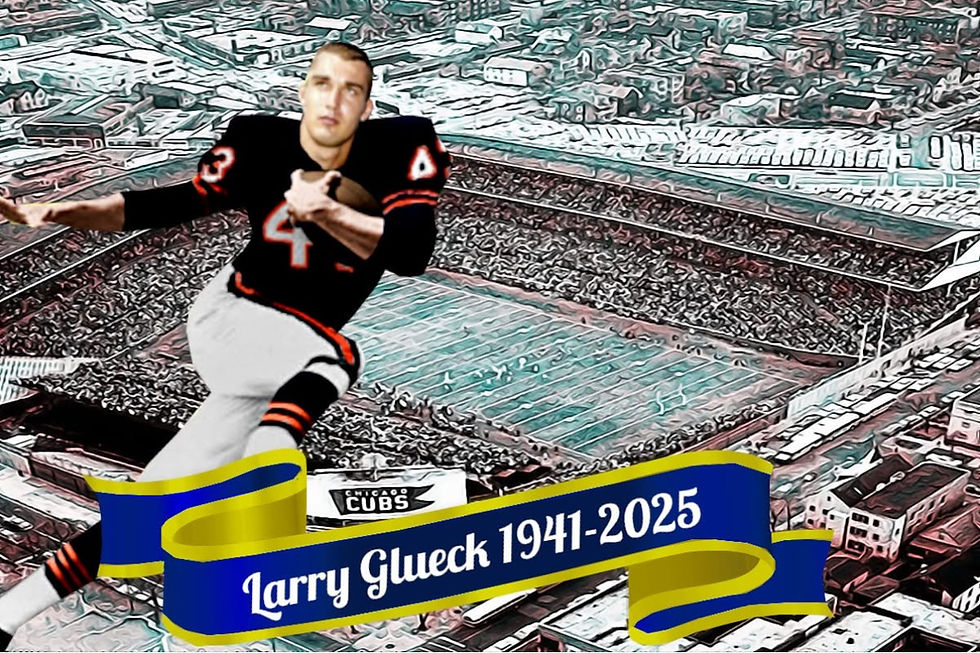The Lasting Legacy of a Good Father
- jamesbriankerr
- Jun 16, 2024
- 4 min read
Updated: Jun 15, 2025

It was more than fifty years ago but that day is etched in my memory like a fossil in stone.
I had just turned twelve and had finally earned the right to go hunting with my father and older brother. It was a crisp November morning, the sky blue and clear as a bell, and a thick skein of frost covered the grass.
We were walking in formation as our father had taught us—he in the middle, my brother and I on either side of him—making our way across the empty field behind our house toward the distant line of woods. In front of us, our dog Sugar crisscrossed the field like a windshield wiper, sniffing the grass tufts for scent of a pheasant or rabbit.
A crow cawed. The air smelled deliciously of fallen leaves and acorns. A distant gunshot broke the stillness of the morning. The hunt was on.
I had walked these autumn fields many times before while shadowing my father on his past hunts, but never with a gun. That needed to wait until I turned twelve and was of legal age to hunt. I’d passed my Hunter’s Safety course, but more importantly, I had passed Dad’s own stringent brand of safety training: hours of practice at the range and in the fields learning how to handle and shoot a gun.
This was no game, after all. A gun was a weapon, he was constantly reminding us. It could kill someone, or at least badly hurt them. As such, it needed to be treated with the utmost respect. To earn the right to carry a gun, my brothers and I needed to show our father that we were mature and knowledgeable enough to enter this dangerous man’s world.
Now at long last that day had come, and I could barely contain my excitement. I was carrying a low-gauge shotgun that could hold only one shell. Dad had bought it as a beginner gun for his sons to learn with. My brother had carried it for a couple years before graduating to a pump shotgun, and now it was my turn to show I could handle it.
I was aware of the gravity of the moment. At one point I looked back and saw our line of boot prints cutting through the frost: three sets of prints, the middle one larger than the others. I remember thinking—I’ve made it, I’m a man.
And yet, I had so much to prove to the man next to me who was watching his two sons with hawk-like eyes to see if we were following the instructions he had drilled into us. Those ten commandments resonated in my head as I walked:
Stay in a straight line.
Keep the gun barrel pointed down at the ground or up in the air.
Make sure the safety is on.
Never point a gun, whether loaded or unloaded, toward a person.
Keep guns and ammunition separate in the house.
Never keep a loaded gun in the car.
Never shoot toward a house.
Know your target before pulling the trigger.
If in doubt, don’t shoot.
And the most important commandment of all: Any horseplay and that gun will be out of your hands faster than you can blink.
My brothers and I were keen to follow those commands not just because they came from our father, but because we wanted the experience we were now enjoying. It was the price of admission to a man’s world. Argue with the rules or give backtalk and you get to stay home.
The same principles applied to all the future privileges we would step into as we grew older: driving a car; using a saw; operating a piece of farm equipment. These privileges involved danger, and as such, they came with a firm set of rules that needed to be followed or else we would not be able to enjoy the benefits that came with them.
I don’t hunt much anymore, but those years in the fields and the woods were a formative training ground for everything that was to come for me and my brothers. Not only did they cultivate within us a love of the outdoors, but they taught us what it meant to be an adult.
In the adult world, privileges and responsibilities are two sides of the same coin. You can't have one without the other.
These are things that good fathers teach. I’m not saying that mothers can’t or don’t teach these things too, but especially for boys, a father’s words and example are critical to establishing the essential rules of manhood and adulthood.
When I see all the violence in today’s world, the irresponsible use of guns, the reckless driving on the roads, the fundamental lack of respect for our fellow mankind and for the rules of society that bind us, I can’t help but think that at least part of this must be due to an absence of good fathering. I have no proof of that, but it just makes sense to me.
Fathers are critical. Fathering is critical. Ignore it at our own peril.
As my siblings and I mark our fifth Father’s Day without our father, we are grateful for the lessons he taught us which continue to resonate with us and with our own children.
A good father may leave us in physical form, but if he has done his job well, his legacy and lessons endure for decades to come.


What incredible memories and lessons. Truly how fathers should teach. Love your words!
Anne